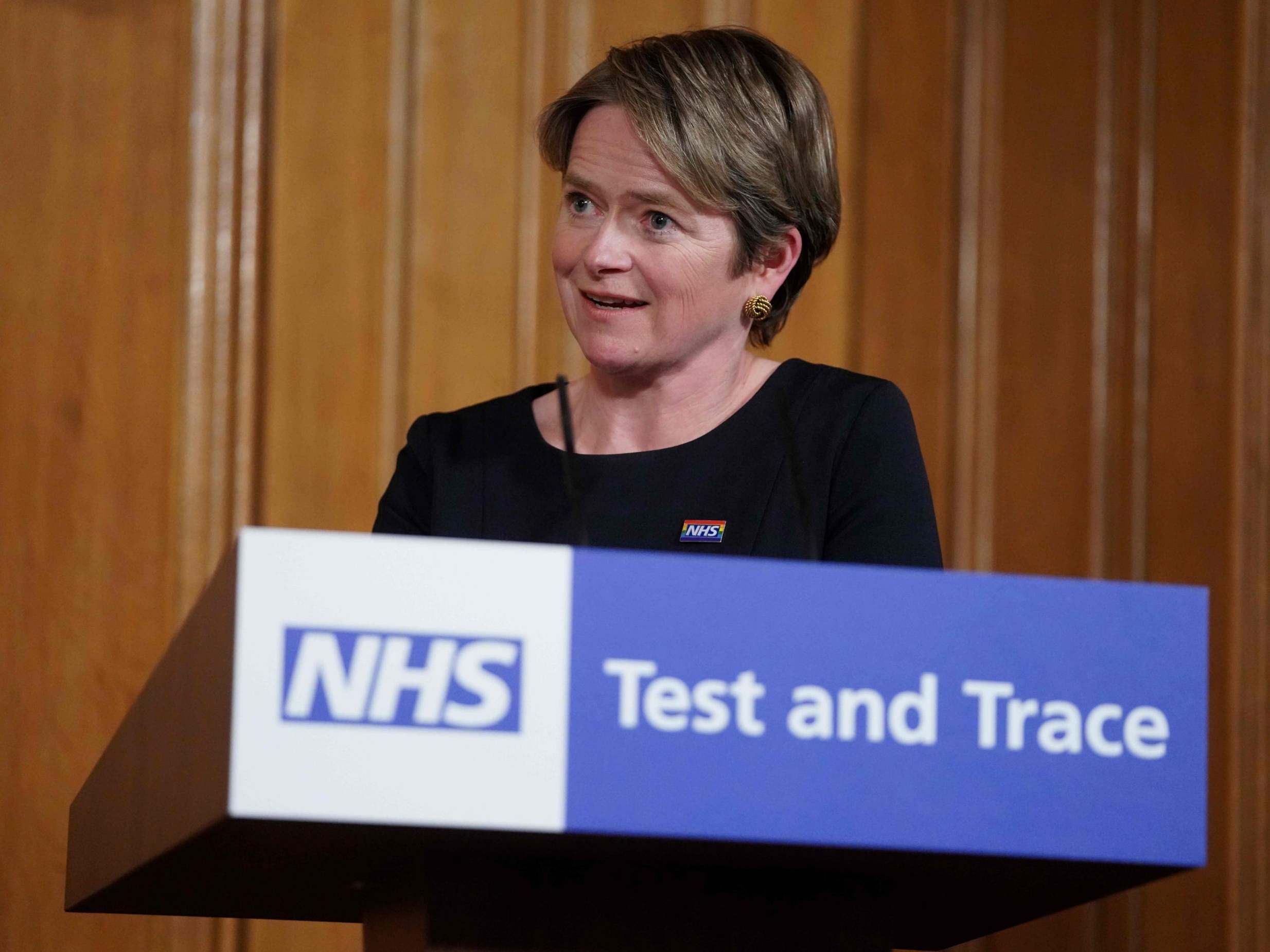Coronavirus: NHS Test and Trace’s national call centres fail to reach almost 40% of contacts
Latest figures follow intense criticism over poor performance of centrally-run system
Your support helps us to tell the story
From reproductive rights to climate change to Big Tech, The Independent is on the ground when the story is developing. Whether it's investigating the financials of Elon Musk's pro-Trump PAC or producing our latest documentary, 'The A Word', which shines a light on the American women fighting for reproductive rights, we know how important it is to parse out the facts from the messaging.
At such a critical moment in US history, we need reporters on the ground. Your donation allows us to keep sending journalists to speak to both sides of the story.
The Independent is trusted by Americans across the entire political spectrum. And unlike many other quality news outlets, we choose not to lock Americans out of our reporting and analysis with paywalls. We believe quality journalism should be available to everyone, paid for by those who can afford it.
Your support makes all the difference.The government’s centralised contact-tracing call centres failed to reach almost 40 per cent of people in close contact with those who tested positive for the coronavirus in England last week, the latest figures show.
Only 61 per cent of the 12,731 contacts identified by staff at NHS Test and Trace’s national call centres were reached and told to self-isolate, according to the Department of Health and Social Care (DHSC).
There has been growing criticism over the performance of the centrally-run NHS Test and Trace system. Earlier this week the government cut 6,000 jobs – and told remaining staff to work with local public health teams and councils.
The latest DHSC figures show that the local public health teams working on “complex” cases successfully reached more than 95 per cent of contacts and told them to self-isolate.
Yet the statistics show the centralised system has been having far less success with the “non-complex” cases handled either by call centres or online. Since NHS Test and Trace was launched, only 57 per cent of contacts have been reached this way.
It follows intense scrutiny over the set-up of the centralised service – which has been partly outsourced to private companies like Serco to run – and its failure to tap into local knowledge to tackle outbreaks of the coronavirus in England.
On Monday, DHSC announced the programme will now provide local authorities across England with a dedicated team of contact tracers to ensure that as many people as possible are being reached, in what the department described as a “new way of working” and a “more tailored service”.
Overall, the NHS Test and Trace system reached 79 per cent of people testing positive for Covid-19 and asked them to provide information about their contacts, in the week ending 5 August.
The latest figures also show that overall, 74.2 per cent of close contacts were reached – up slightly on 72.4 per cent in the previous week.

The new weekly statistics also show a worrying drop in the proportion of coronavirus home testing kit results turned around within 48 hours. Only 44 per cent of post-out tests were turned around within two days – down from 72 per cent the previous week.
The DHSC said the increases in waiting times were “mainly due to an IT systems failure at one of the laboratories which resulted in a delay to the processing of results.”
Following months of delays, the coronavirus contact tracing app for England has edged a step closer with the launch of a new public trial on Thursday.
The Isle of Wight will be at the helm once again alongside NHS volunteer responders across England from Thursday, “followed shortly” by the east London borough of Newham, the DHSC said.
Conservative peer Dido Harding, executive chair of the NHS Test and Trace, said: “There is no silver bullet when it comes to tackling coronavirus,” adding that the revamped app was “a great step forward and will complement all of the work we are doing with local areas across the country”.
Health secretary Matt Hancock added: “We’ve worked with tech companies, international partners, privacy and medical experts to develop an app that is simple to use, secure and will help keep the country safe.”
“We are hugely grateful to everyone playing their part to rigorously test the new app and provide the foundation for a national rollout.”
Join our commenting forum
Join thought-provoking conversations, follow other Independent readers and see their replies
0Comments